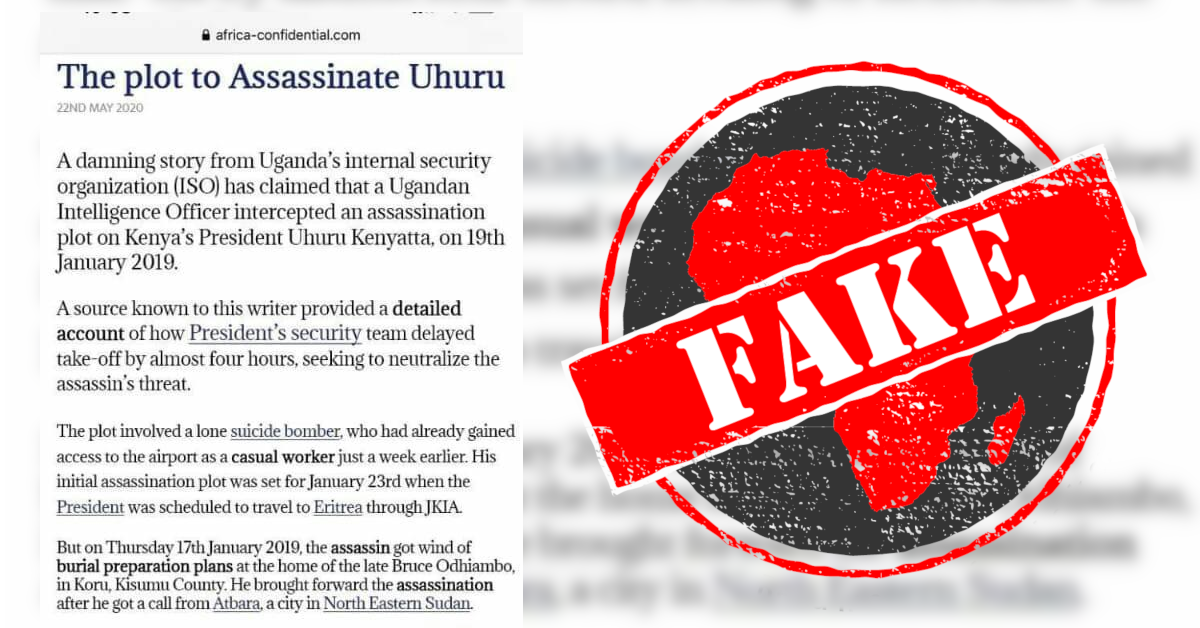An image of what appears to be the front page of Kenya’s Standard newspaper from 10 October 2020 has been widely shared across Facebook.
The headline reads: “Ruto: I don't need Uhuru in 2022.”
Text below the headline reads: “In an unexpected escalation of defiance against his boss, DP Ruto now says he doesn't need President Kenyatta's support in the 2022 presidental duel.”
As far back as 2017, president Uhuru Kenyatta had said he would support deputy president William Ruto’s 2022 presidential bid. But in 2020 the president has been more noncommittal on the subject.
Data from CrowdTangle, Facebook’s public insights tool, reveals that the image has been shared in public groups with thousands of members. But does it really show the Standard’s front page?

The real front page of the 10 October edition of the newspaper is completely different.
The actual headline reads: “Raila allies push to impeach Ruto.” The paper also shows a different photo of Ruto.
The Standard published posts on Facebook and Twitter explaining that the version circulating on social media was fake.
It asked its readers to “avoid fake news” and instead buy a copy of the newspaper. – Dancan Bwire
The headline reads: “Ruto: I don't need Uhuru in 2022.”
Text below the headline reads: “In an unexpected escalation of defiance against his boss, DP Ruto now says he doesn't need President Kenyatta's support in the 2022 presidental duel.”
As far back as 2017, president Uhuru Kenyatta had said he would support deputy president William Ruto’s 2022 presidential bid. But in 2020 the president has been more noncommittal on the subject.
Data from CrowdTangle, Facebook’s public insights tool, reveals that the image has been shared in public groups with thousands of members. But does it really show the Standard’s front page?

‘Avoid fake news’ says newspaper
The real front page of the 10 October edition of the newspaper is completely different.
The actual headline reads: “Raila allies push to impeach Ruto.” The paper also shows a different photo of Ruto.
The Standard published posts on Facebook and Twitter explaining that the version circulating on social media was fake.
It asked its readers to “avoid fake news” and instead buy a copy of the newspaper. – Dancan Bwire
Republish our content for free
For publishers: what to do if your post is rated false
A fact-checker has rated your Facebook or Instagram post as “false”, “altered”, “partly false” or “missing context”. This could have serious consequences. What do you do?
Click on our guide for the steps you should follow.
Publishers guideAfrica Check teams up with Facebook
Africa Check is a partner in Meta's third-party fact-checking programme to help stop the spread of false information on social media.
The content we rate as “false” will be downgraded on Facebook and Instagram. This means fewer people will see it.
You can also help identify false information on Facebook. This guide explains how.


Add new comment